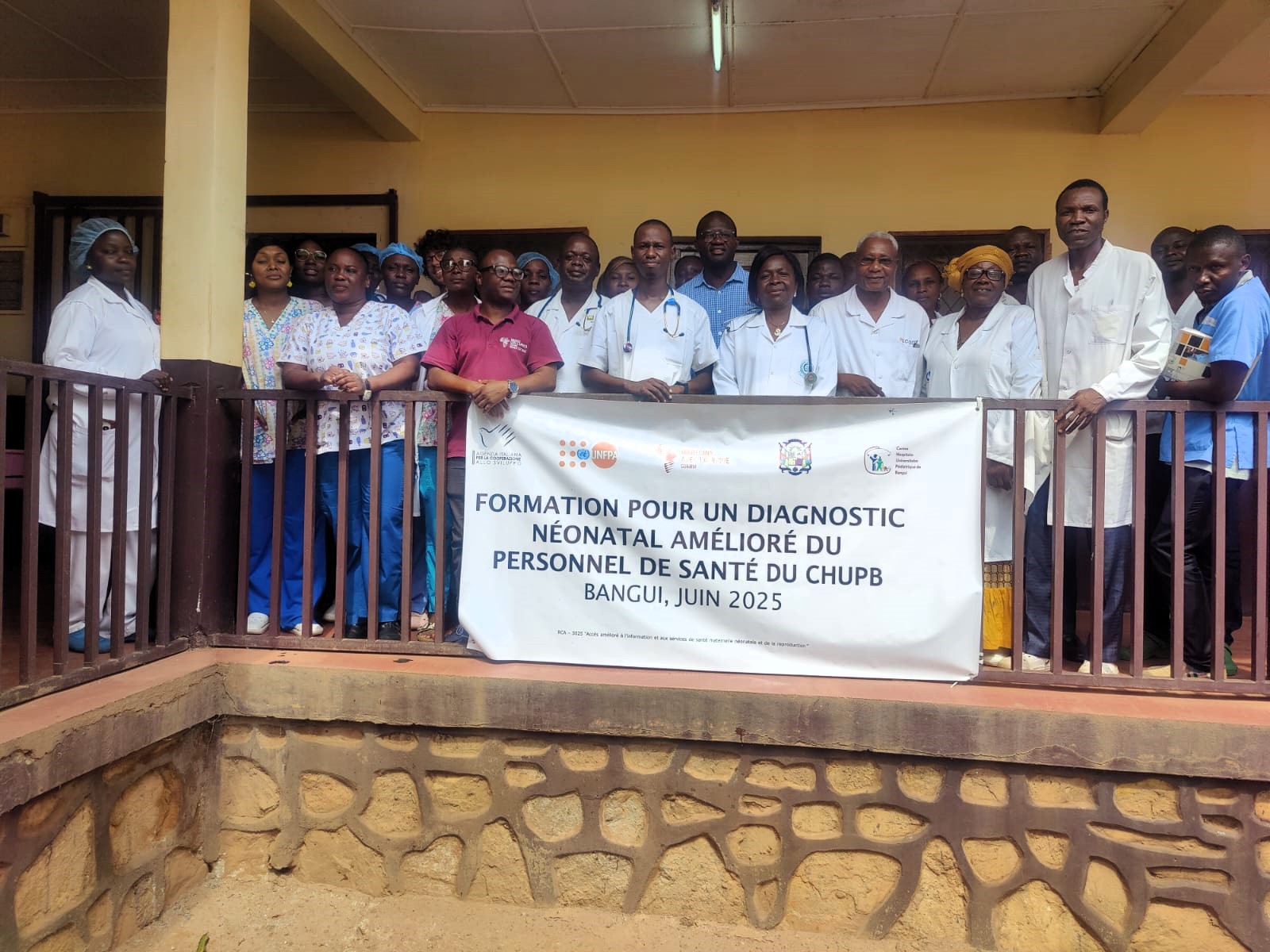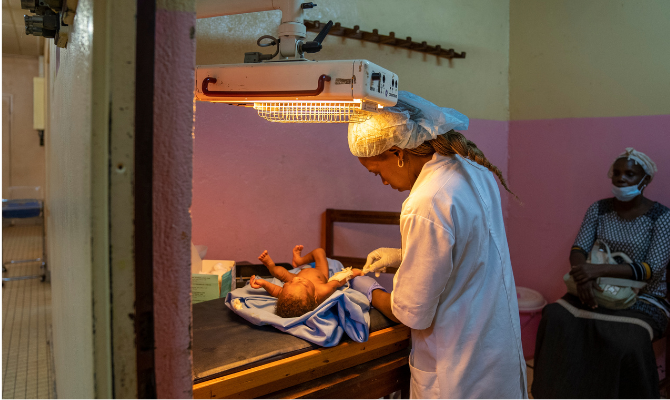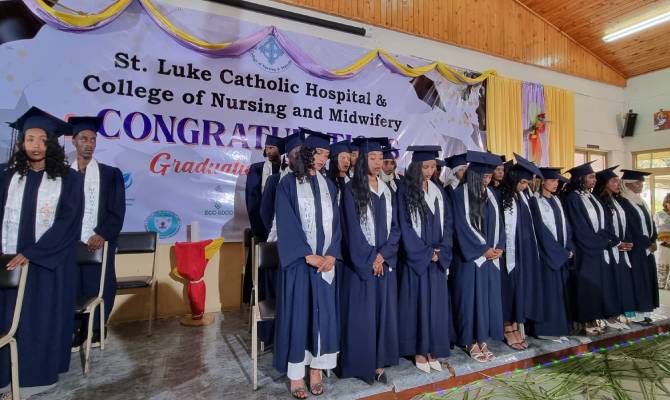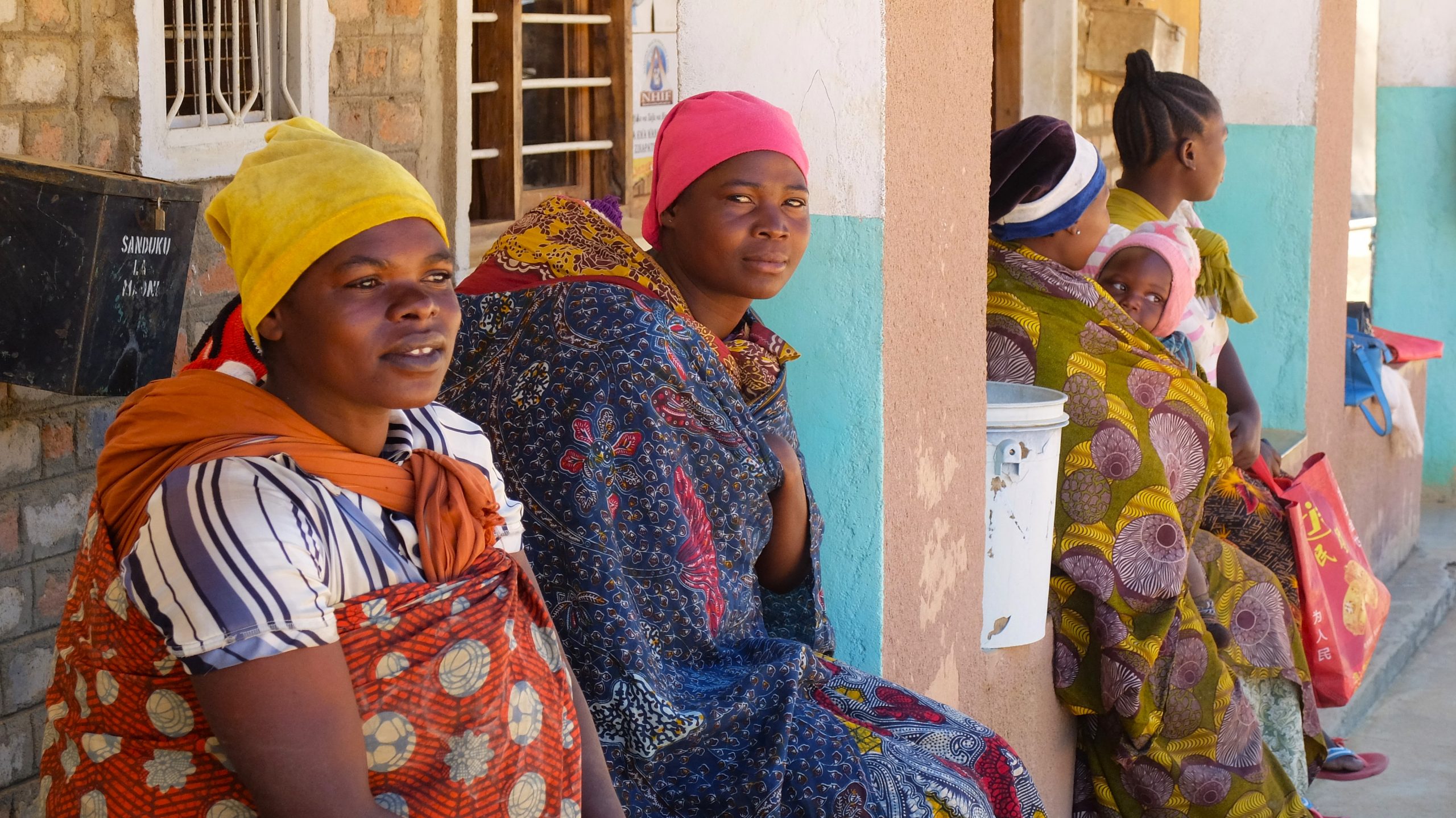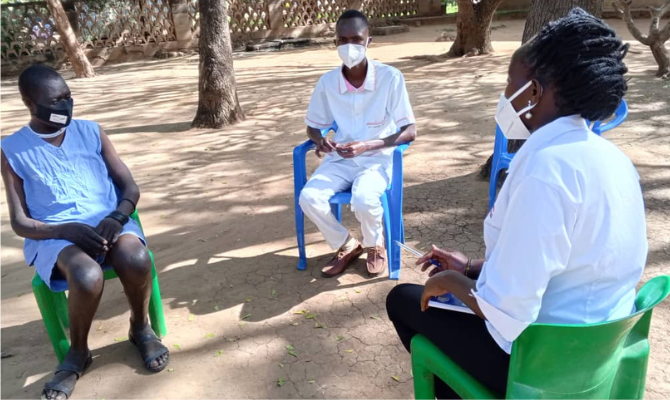A classroom more crowded than expected. The focus is on improving essential and specialized neonatal care by strengthening the skills of health personnel. We are at the Complex Hospitalier University Pédiatrique de Bangui (CHUPB), in the Central African Republic, where 45 operators, including medical staff, paramedics and residents from the CHUPB but also from the peripheral hospitals of Bimbo and Gendarmerie, participated in a training on the reception and first aid of newborns, on neonatal resuscitation techniques and on the identification of preventable causes of neonatal death.
The Central African Republic is one of the countries with the highest neonatal mortality rate in the world, 30.7 deaths per 1,000 live births (UNICEF 2023). In the first quarter of 2025, from January to March, the overall mortality at the CHUPB was 4.5%, 19% in neonatology. “Most of the information received during the training course was new and I would say vital to reduce neonatal mortality at CHUPB, because, in my humble opinion, we all had gaps, especially with respect to the neonatal resuscitation process,” said a trainee who took part in the course. “Neonatology is a specialty that requires in-depth knowledge of standards and protocols, but above all the ability to adapt them to the newborn, which is not always easy.”
Practice is therefore essential and is the aspect on which the greatest emphasis was placed in the training, to promote a change in inadequate practices in use, especially in neonatal resuscitation but not only. Infection prevention and control (IPC) through compliance with correct hygiene practices was also the subject of the course and of the recommendations given by Professor Papa Moctar Faye, a CUAMM neonatologist, during his technical mission. “Given the limited space and the high influx of patients, it is essential to place intensive care in a single room, regardless of gestational age, limiting mothers’ access to reduce the risk of infections. It is also necessary to install a sink for washing hands at the entrance to the intensive care room because rigorous compliance with hygiene measures and IPC is an absolute priority to reduce neonatal mortality in the department”.
Other aspects to improve include the use of antibiotics, which requires a review of the protocols, but also the promotion of good nutritional and newborn care practices, such as the “Kangaroo Mother” method, the skin-to-skin contact to further strengthen neonatal health.
Investing in human resources to generate real change has always guided CUAMM’s commitment. This specific training is part of the project “Improved access to information and services for maternal, newborn and reproductive health”, supported by UNFPA and implemented by CUAMM al CHUPB. The aim is to strengthen the knowledge and skills of the health workers but it also aims to transmit a new approach to the newborn, to care and to the work environment. It is the starting point to guarantee quality health services for the entire community.
